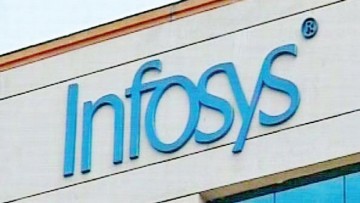 UK Prime Minister Rishi Sunak is in hot water after Trade Minister Dominic Johnson revealed that he gave special treatment to Sunak’s father-in-law’s Indian IT firm, Infosys.
UK Prime Minister Rishi Sunak is in hot water after Trade Minister Dominic Johnson revealed that he gave special treatment to Sunak’s father-in-law’s Indian IT firm, Infosys.
Infosys is owned by Rishi’s daddy-in-law, Narayan Murty, and his missus, Akshata Murty. She owns a 0.91 per cent stake in the company. She trousered £13 million in dividends from Infosys last year, making Rishi the richest PM ever.
The scandal comes as Rishi tries to polish his image before the next election. But it seems he has some skeletons in his closet or his in-laws’ closet.
According to media reports, trade minister Dominic Johnson had a cosy chat with Infosys bosses in Bengaluru, India, last year. He allegedly told them he would “do what he could” to help them do business in the UK.
The meeting was recorded,, and the transcript shows that Johnson was keen to see more Infosys presence in the UK market and “would be happy to do what he could to facilitate that. ”
He reassured the Indian firm “on the prospects for the UK economy” and reminded them of the support that the UK government “can provide through Department for Business and Trade”.
He added: “We value the relationship with Infosys and will continue to engage at a ministerial level when requested.”
The Labour Party has seized the opportunity to bash the Tories, saying that the Infosys VIP access is a reminder of the dodgy VIP lane of business where firms get in touch with Tory ministers to bag lucrative deals, like the PPE fiasco during COVID.
The Shadow Paymaster General, Jonathan Ashworth, said the Tories have questions to answer as they “handed billions in taxpayers’ cash to cronies for duff PPE”, and now “the public will wonder why an outfit so personally close to Rishi Sunak appears to have been granted this VIP access”.
This is not the first time Rishi’s wife has been accused of profiting from her husband’s position. In 2022, when Rishi was the chancellor, she paid UK tax on her foreign income but refused to pay tax on her past income, claiming she was a non-domiciled UK resident, which means she doesn’t have to pay UK tax on money made abroad.
She also faced allegations of collecting blood money from Infosys, which continued to operate in Russia despite sanctions imposed by the UK after Putin invaded Ukraine. Rishi had asked all UK firms to withdraw from Russia, but Infosys ignored him. They later said they were closing their Moscow office.
In January, Rishi’s wife had to give up her shares in a company called Koru Kids, which provides childcare services, to charity. This was after the UK parliament’s standards watchdog said that Rishi had broken the code of conduct by not disclosing his wife’s assets and shareholdings. The company had benefited from the UK childcare policy announced in the spring budget.
There are also concerns that Rishi’s family benefits from the post-Brexit free trade agreement with India, which could give Infosys more access to the UK market.
Infosys is known for its efforts to improve access for thousands of its contract workers to the UK, by using a visa loophole that allows them to bring in staff as intra-company transfers.





